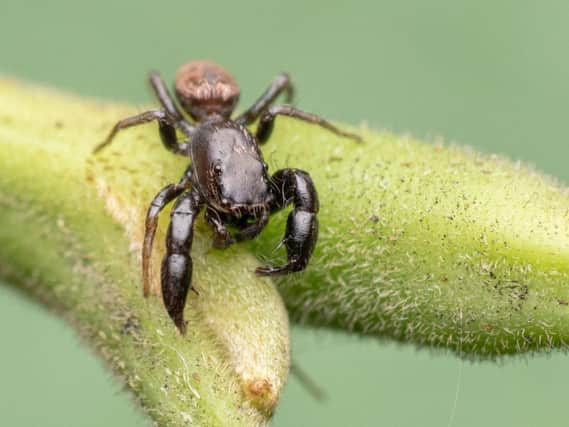Warwickshire team help discover new spider species


Professor Richard Pearce, an arachnologist and research scientist based at WCG’s Moreton Morrell College, has been working with renowned naturalist Javed Ahmed and a team of field researchers in India on a wider research project exploring spider biodiversity in the region.
They found a spider in India that has previously gone unrecorded but scientists believe the tiny spider – from the genus Afraflacilla – is more likely to benefit humans than harm them.
Advertisement
Hide AdAdvertisement
Hide AdThere is little known about the genus Afraflacilla. The discovery in Kolkata (formerly known as Calcutta) has shed new light on this previously undocumented spider - first spotted by Supratim Laha, who quickly recognised the potential significance of his finding.


And the fact that this important discovery was made in a university garden in a densely populated urban area has generated further excitement about the discovery.
Professor Pearce said: “This is hugely important and exciting work. We are in an era when there are serious concerns about the biodiversity crisis across the planet so discoveries such as this give us hope that we can address that.
“We can say for certain that this is the first time this spider has been discovered in India. Further research will hopefully reveal more about the ecology and distribution of these fascinating and unusual looking spiders.
Advertisement
Hide AdAdvertisement
Hide Ad“Any discovery of new species and little known species is positive news. The fact that is was found in a garden in an urban area is particularly exciting because we need to look at howwe interact with biodiversity and the importance of green spaces in our towns and cities.
“We are still undertaking research with the team in India but we can confirm that this spider poses no threat to humans and, in fact, appears to feed on certain types of mosquito that can spread disease.”
He added: “As well as the wider interest and benefits, this is extremely beneficial to the students we teach here at Moreton Morrell College.
“They can see how a real-life research project is undertaken and the work that goes into it – how we design a project, carry out the research and then analyse it.
Advertisement
Hide AdAdvertisement
Hide Ad“This is a great example of how modern technology has changed the way we can carry out this type of research. As much as I would love a trip out to India to work on this project, I’ve been able to work together on this research paper with fellow professionals in India at the same time when we are thousands of miles apart.”